People often get confused when they order coffee or buy paper cups. An 8 oz cup1 may sound standard but what does it really mean in size? An 8 oz cup1 holds about 237 milliliters of liquid, which is roughly the volume of a small coffee2 or tea cup.
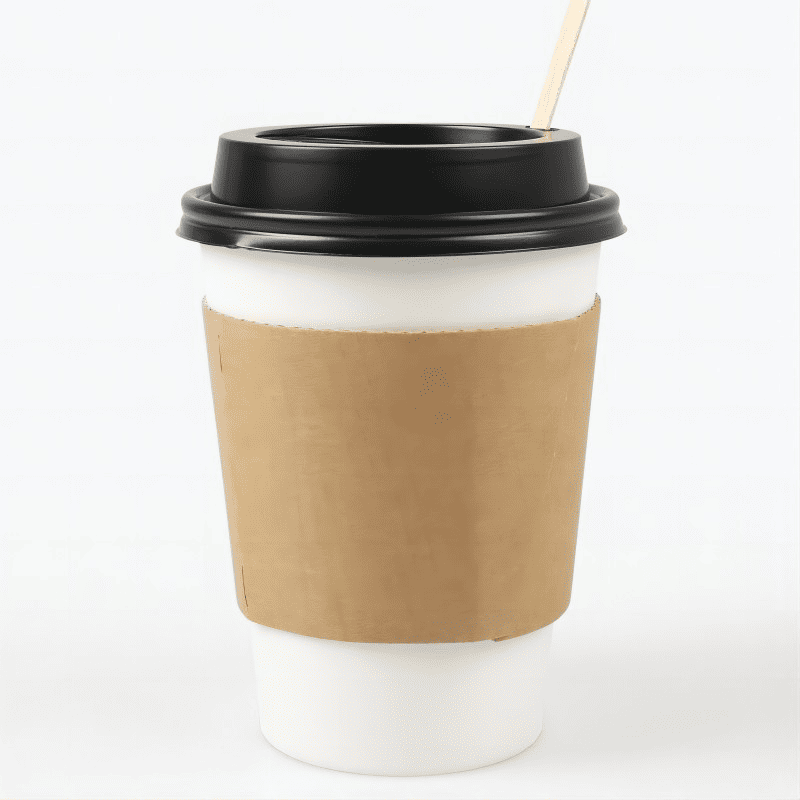
This size is common for small servings in cafés or for single-serve drinks.
What size is an 8 oz paper cup3?
Many people talk about cup sizes in ounces, but in packaging, we often need to know the physical dimensions. An 8 oz paper cup3 is usually around 95 mm (3.75 inches) tall with a top diameter of about 80 mm (3.15 inches).
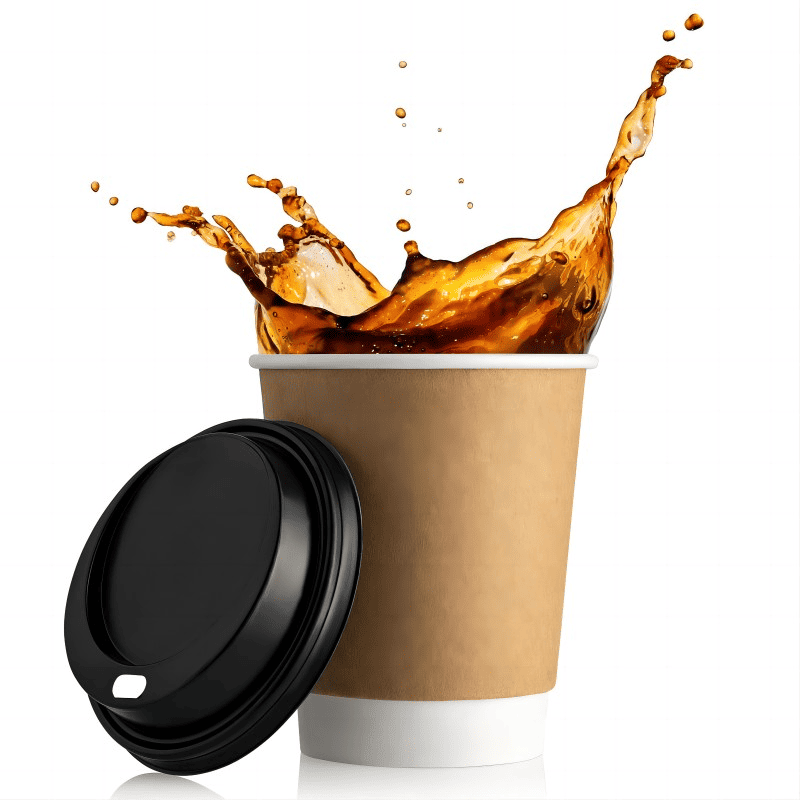
In my years of making paper cups, I have noticed slight differences between manufacturers. Each brand may adjust the height and top width to suit their filling machines or lid designs. Although the volume is the same, the shape can be taller and narrower or shorter and wider. Buyers should check both the capacity and dimensions before ordering to make sure lids fit.
| Capacity | Height | Top Diameter | Bottom Diameter | Common Use Cases |
|---|---|---|---|---|
| 8 oz | 90–95 mm | 75–80 mm | 50–55 mm | Small coffee, tea, ice cream |
What size is 8 oz of coffee4?
Coffee culture can make cup sizes even more confusing. 8 oz of coffee4 is a small serving, close to 1 US measuring cup, and is common for home coffee makers and basic menu sizes.
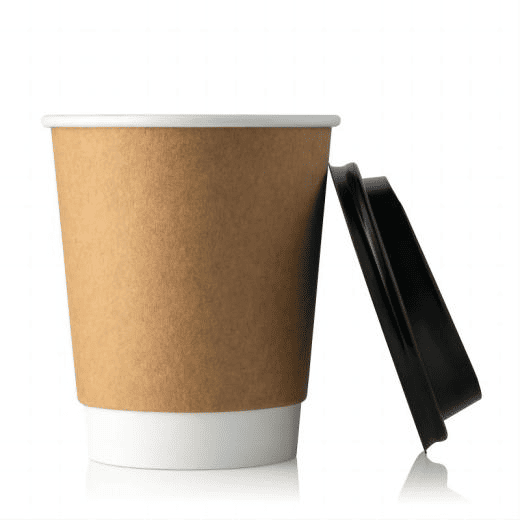
When I prepare coffee at home, I often use an 8 oz mug. But in cafés, a “small” size can range from 8 to 12 oz depending on the brand. Specialty coffee shops sometimes serve espresso-based drinks like cappuccino5s in smaller cups—6 to 8 oz—to keep milk-to-coffee ratios balanced. For filtered coffee, an 8 oz cup1 is considered a modest and controlled portion, especially for taste testing or sampling.
| Drink Type | Typical 8 oz Usage | Reason for Size Choice |
|---|---|---|
| Cappuccino | Standard small cup | Milk-coffee balance |
| Drip coffee | Home single-serve | Matches measuring cup volume |
| Latte | Smaller sizes for stronger flavor | Café-specific portion control6 |
What size is a normal coffee cup7?
"Normal" is one of those words that changes from place to place. A normal coffee cup7 for everyday use is between 8 and 12 oz, but café serving sizes often start at 12 oz for regular drinks.
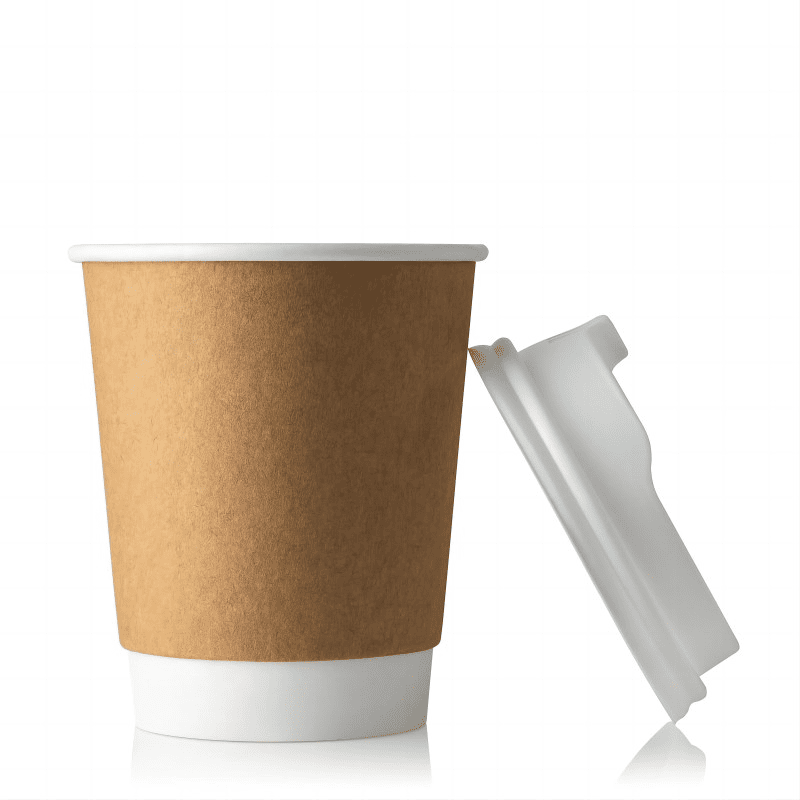
When I visit clients overseas, I often notice different expectations. In the United States, drip coffee8 cups are usually 12 oz for a “small,” while in Europe, an espresso is just 2 oz and a cappuccino5 is 6 to 8 oz. For office paper cups, 8 oz is still common because it reduces waste and controls portion sizes. Branded coffee chains tend to size up because larger sizes are perceived as better value by customers.
| Region | “Normal” Coffee Serving Size | Cultural Practice |
|---|---|---|
| USA | 12–16 oz | Larger sizes seen as value |
| Europe | 6–8 oz | Focus on concentrated flavor |
| Office setting | 8 oz | Control waste, reduce refills |
What does 8 oz of water9 look like in cups?
This is a common question for cooking, dieting, and daily water goals. 8 oz of water9 equals 1 US measuring cup, which fills a standard small glass or regular home mug to near the top.
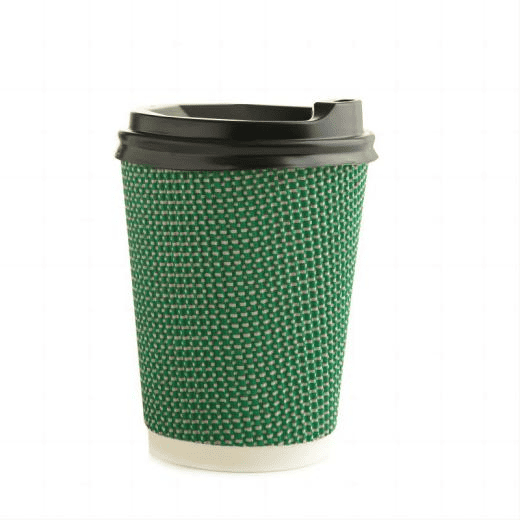
I remember teaching a client how to visualize cup capacity without a scale. An easy way is to take a standard kitchen measuring cup, fill it to the 1-cup mark, and then pour it into their chosen cup. This helps see if a paper cup order should be 8 oz or something larger. For businesses, knowing this is critical because the wrong size can lead to waste or customer disappointment. At home, it can support health goals—many nutrition guidelines recommend eight 8 oz glasses of water a day, which is about 2 liters.
| Measurement | Ounces (US) | Milliliters | Visual Reference |
|---|---|---|---|
| 1 US cup | 8 oz | 237 ml | Small mug or glass |
| ½ US cup | 4 oz | 118 ml | Juice glass half full |
| 2 US cups | 16 oz | 473 ml | Medium to large mug |
Conclusion
An 8 oz cup1 holds about 237 ml and is widely used in coffee, tea, and ice cream servings, with dimensions that vary slightly by manufacturer and purpose.
1.Understanding the volume of an 8 oz cup helps in choosing the right serving size for beverages. ↩
2.Learning about small coffee sizes can help you navigate café menus more effectively. ↩
3.Knowing the dimensions of an 8 oz paper cup is essential for ensuring proper fit with lids and machines. ↩
4.Exploring coffee serving sizes can enhance your understanding of portion control in coffee culture. ↩
5.Understanding cappuccino sizes can enhance your coffee experience and ordering confidence. ↩
6.Understanding portion control can help reduce waste and improve health outcomes. ↩
7.Discovering the standard sizes of coffee cups can help you choose the right cup for your needs. ↩
8.Knowing the serving size for drip coffee can help you brew the perfect cup at home. ↩
9.Visualizing 8 oz of water in various cups aids in understanding portion sizes for hydration. ↩